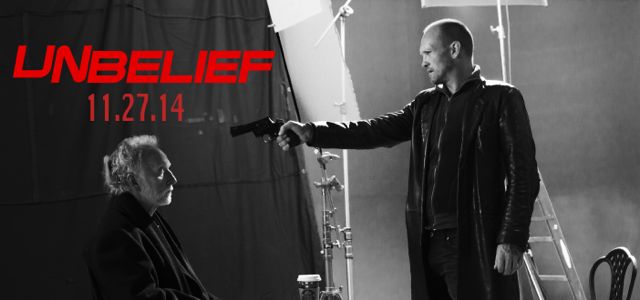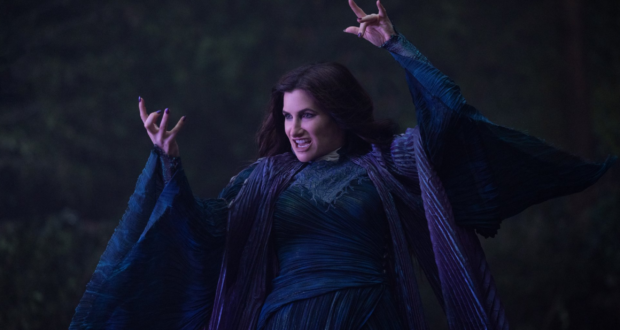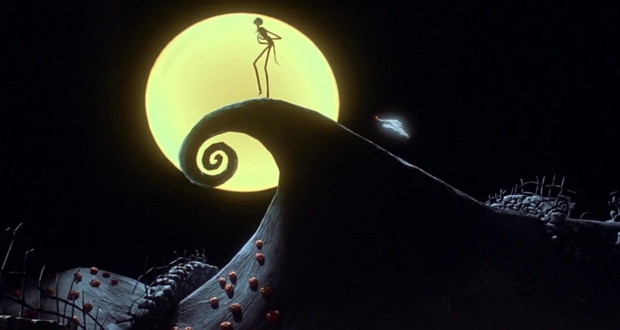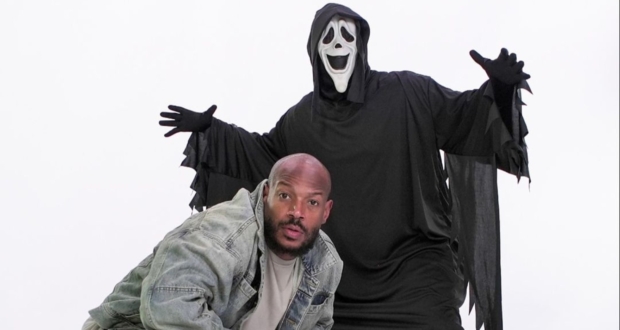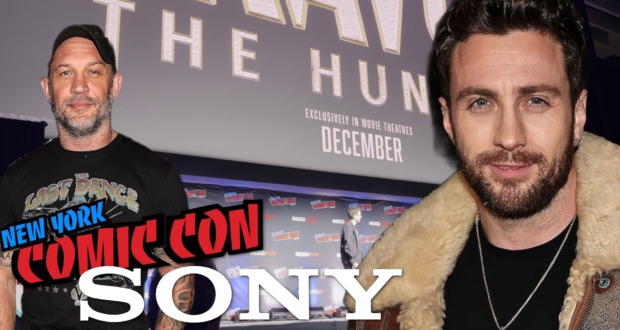French filmmaker Fabian Martorell turned in two short films to The Movie Blog to be reviewed. The Coin and Unbelief are two conceptual shorts blowing as much hot air as possible in their fleeting timespans. These two share a theme (faith) and play off of each other nicely. Both tackle the idea of faith in different ways—one looking to the future, the other dealing with the past—and present adulthood as a painful miscarriage of the hopefulness of childhood.
The first, The Coin (based on a short story by David Mamet), starring Christopher Lloyd as a homeless man moonlighting as a guardian angel (reprising his role from Angels in the Outfield), Kathryn Morris as a mother who hates her life too much to love her son, and the bewildered looking Jack Ryan Shepherd as said unloved son, is the best (and only) film I’ve seen set in a convenience store since Kevin Smith’s Clerks. The Coin is mysterious and uplifting, and perhaps a little too righteous.
To set the scene, a verbally abusive mother (Morris) drives with her young son (Shepherd) to a store, berating him for having broken a new toy she’s bought him. Once inside the mart, she continues to berate him, telling him all his toys will be sent away in the same fashion Garfield sends Nermal to Abu Dhabi. While mom shops (ordering her son to sit still in one of the aisles), a homeless man (Lloyd) slithers around from another aisle and lays beside the boy. He spins him a yarn about being his guardian angel, gives him a magical coin, and helps him realize he’s a good boy and always will be. That he happens to be near the wine is a happy coincidence.
Lloyd and Shepard share something with The Shining—Shepard looks like little Danny, and Lloyd definitely bears resemblance to an older, thawed out Jack. But the best part of The Coin is when Christopher Lloyd recreates the fork dance Charlie Chaplin made famous in The Gold Rush using dinner rolls and plastic cutlery for his own, homeless twist. Where he got the rolls and forks from, we don’t know. It’s all part of the mystery.
The second film, Unbelief, is nearly the exact set up as Allen Baron’s Blast of Silence—a hit man doing a job in New York City on Christmas Eve. But Baron’s atmospherically brilliant Blast of Silence—one of the best visual juxtapositions ever filmed, with the grit of 1970’s NYC swirling with the city’s annual beauty at Christmastime—is a totally different film from Martorell’s. Martorell’s Unbelief is more of a final encounter, a hit man on one last job—he has a wife, a house, and another job besides contract killing—to settle the score with an old acquaintance. Shot with crystal clarity (so as to not be distracted from the all important dialogue), what we witness is a very pointed conversation, one pregnant with hostility. These two men (the hitman played by Andrew Howard, his target by Tobin Bell) face each other down in a park café, like two broke philosophers, debating about the “good” and “bad” in all of us. If you want to venture a guess on what Unbelief is about, it’s best to examine the toy fire engine that appears near its end (hint: he’s killing Santa Claus!). Unbelief is like a fortune cookie with a riddle inside and then wrapped in a larger riddle stapled shut around it. It’s trying (too hard) to be cute, clever and coy, but if you figure it out (I think the point is to figure it out), you’re left with a really depressing ending and one of the most despicable villains in cinema history.
Martorell does one thing very right with these two short films and it has to do with the larger purpose of the short film in general. A short is like a carpet sample. They are made to give us an idea of what the filmmaker—or carpet, if you’re stuck on that part of the analogy—can do on a larger scale. It is not massively important to make the best little short film, but it is important to be distinct, to give an audience a taste of mood, of tone, of concept and to successfully begin and end something. Martorell presents himself as a thinker, a dreamer even. His characters are in pain, but his outlook sunny. Maybe Martorell’s storytelling will flesh out to something more gripping whenever he crosses over to feature films (reportedly he has a feature, based on the Chuck Palahniuk novel, Snuff, that has been in the works since 2010—yikes!). And maybe it won’t. Such is the exciting world of a burgeoning filmmaker.
I Give “The Coin” 2 out of 10, “Unbelief” 3 out of 10
